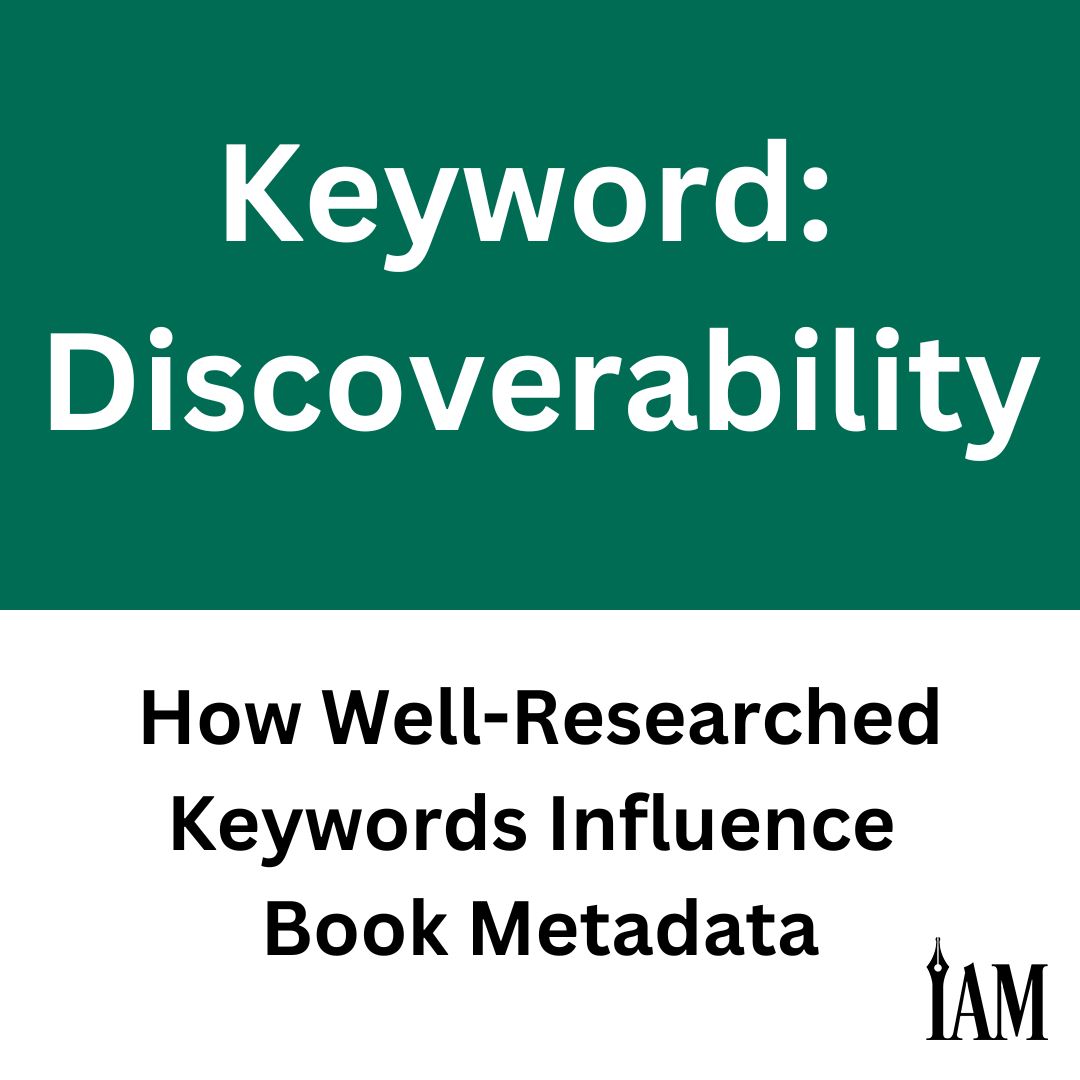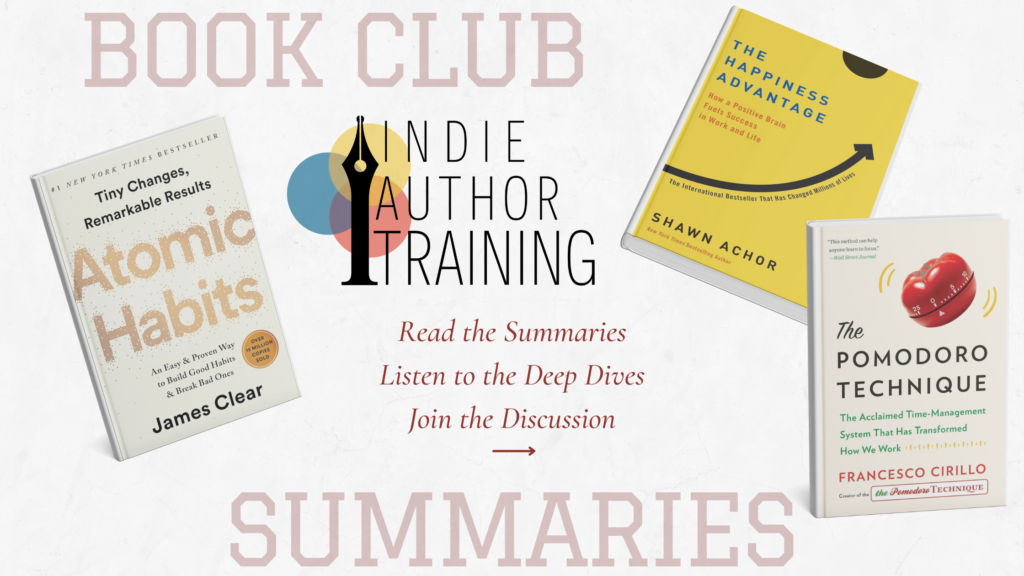How Well-Researched Keywords Influence Book Metadata
Cracking the code of effective keyword use in book listings, book descriptions, and marketing can be intimidating. You need to be able to identify not only the language you believe describes your book but the language others may use to connect with it as well. Yet fine-tuning that language is an essential and ever-changing part of marketing your work.
Conducting market research and learning to think like your readers are valuable techniques for finding the right words to use. When it comes to applying them in your sales strategy, one of the most effective ways may also be one of the simplest: using those well-researched words, terms, and phrases to customize the keywords in your book’s metadata.
Understanding Keywords and Metadata
Mastering keyword and metadata customization takes time, effort, and energy. The two are closely related: keywords are specific terms or phrases that represent the main ideas, themes, or topics covered in a book, and metadata includes any other descriptive information about the book, such as the title, author, publisher, publication date, genre, and subject matter. Keywords are carefully selected to enhance a book’s discoverability and aid in categorization. Metadata provides contextual information to help with cataloging, indexing, and retrieving a book from databases or libraries.
So it’s easy—and correct—to conclude that keywords are an integral part of a book’s metadata. Keywords aren’t repeating information from the book’s existing metadata. Instead, they provide additional information on related subject matter so readers and search algorithms can find the book based on specific topics or themes.
So how do you come up with them?
Nonfiction authors often use terms related to their book’s focus; if a book is about reiki, its metadata might include keywords such as “energy healing,” “mindfulness,” “holistic,” and “seven chakras.” Fiction authors may use keywords aligned with themes, tropes, and subgenres in their stories. The simplest place to start may be to make a list of twenty common terms or phrases your reader would use in an online search for your book. Then expand the list with synonyms. Before you know it, you’ll have a list of forty or fifty words to interchange.
Speaking of interchanging keywords, it’s good practice to update your keywords every once in a while; doing so will grab your readers’ attention and make your book more discoverable by search engines. Be mindful of any buzz-worthy trends related to your topic or theme. Sprinkling in a few of them along with evergreen terms—more common terms for your theme or topic, such as genre keywords—will balance your content to appeal to a diverse range of markets.
These are basic principles of keywords, but the tools can be more impactful than authors may realize—and there are plenty more ways to generate them effectively to market your work.
Using Keywords for Relationship Building
Every author seeks to understand what their audience wants in a story. The key to intriguing readers into purchasing your book is establishing a connection with them. Keywords, even as a basic marketing tool, can help spark that connection.
A primary step in the relationship-building process is identifying the themes in your book that your readers are most interested in. Knowing the solution your book provides, your reader’s needs, and how to fulfill their expectations of a particular genre will help you craft a strong author brand—and find the keywords that resonate with them the most.
To start, consider how your readers most commonly find their book titles.
- Word of Mouth: Recommendations from librarians, friends, family, or colleagues are a powerful and trusted way for readers to discover new books that often carry significant weight.
- Online Reviews: Readers often turn to online platforms such as Goodreads, Amazon, book blogs, or social media platforms to read reviews, observe ratings, and gather recommendations from fellow readers and other trusted sources.
- Bestseller Lists: Bestseller lists provide a curated selection of popular and trending new titles and authors that are receiving significant attention and acclaim.
- Bookstores and Libraries: Browsing these physical and online platforms remains a classic way for readers to explore curated displays and discover catchy titles and new genres.
- Author Events and Literary Festivals: Book signings and literary festivals provide opportunities for readers to receive personalized book recommendations.
- Book Clubs and Reading Communities: These social settings provide book discussions and shared recommendations that introduce readers to new or trending titles that may be out of their norm.
- Book Awards and Literary Prizes: Prestigious book awards and literary prize nominations, shortlists, and winners are often highlighted in media coverage or book promotions.
- Online Book Retailers and Algorithms: Online retailers like Amazon frequently use book recommendation algorithms based on shoppers’ browsing history, purchase patterns, and customer reviews.
- Book Blogs and Influencers: Book bloggers, BookTubers, and social media influencers who specialize in book recommendations in specific genres can significantly impact readers’ book selections because of their trusted opinions and ability to discover new books.
Study the themes, topics, and keywords used by your readers’ trusted sources and in the comments of their followers, and you can begin to identify which words will resonate most with your target audience—and put your book in front of them. Pay attention to online book recommendation requests of friends who read in your genre, as well as the keywords their followers use to recommend titles. This data, along with the previously mentioned sources, can be valuable content for your book listings and metadata.
Generating Keywords: Competitive Titles and SEO Tools
You’re likely already familiar with the central themes, topics, or subject matter of your book, but will readers focus on different aspects of it when describing your work? When generating keywords, take on your reader’s perspective and include specific words and phrases they may use to describe your book or books like it. According to IngramSpark, “The more specific the keywords, the more likely the person searching for those specific words will be happy to find your book among the search results.”
It may be tempting to use generic or overly broad keywords to try to attract a larger audience, but terms like these won’t guarantee your book shows up for potential readers with the most interest in your work. Identify a targeted audience to increase engagement with your book.
Next, study which keywords your book’s competitive titles used in their book listings and marketing. Similar books in your genre can provide insight and inspiration for refreshing your keyword bank.
Another option is to leverage research keyword tools and platforms for fresh keyword suggestions. Using these tools can help keep you informed about keyword popularity and broaden your selection.
Google Ads (formerly Google AdWords Keyword Planner): Besides ad campaign support, Google Ads can provide insight into search volume and keyword suggestions based on your book’s topic or genre.
Amazon SEO: When publishing a book on Amazon, this platform offers keyword suggestions based on your book’s title, category, and description to help you optimize your book’s metadata and product listing for better visibility within Amazon’s search results to connect with more readers.
BookBub: This platform offers book marketing and promotion as well as blogs and resources on book marketing strategies, such as keyword research and optimization.
Keyword.io: This free longtail keyword research tool collects keywords on specific topics from various sources, including search engines and platforms like Amazon, Google, YouTube, Bing, Fiverr, and more. Some of its features include Google autocomplete, Amazon autocomplete, and Fiverr autocomplete.
Google Trends: Google Trends allows you to explore the popularity and search volume of specific keywords over time and can help identify trending or seasonally relevant keywords for your book marketing efforts.
These resources are starting points for your keyword research, and the results can be adapted specifically for your book and target audience.
Periodically Test and Refine Your Keyword List
Lastly, it’s important to monitor your book’s performance and adjust your strategy accordingly. Continually update and optimize your keyword selection to improve your book’s discoverability.
Be sure to evaluate keyword effectiveness over time. Your book’s sales performance, as well as its position in your search results, will help you determine if you’re on the right track. And if a particular keyword isn’t yielding the results you want, don’t be afraid to swap it out.
Choosing effective keywords requires a healthy balance between specificity and popularity. Aim for keywords that accurately represent your book’s content and are relevant to your target audience’s search habits, and you can’t go wrong.






